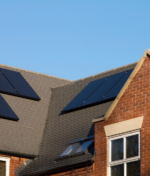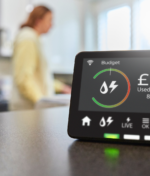
What Is the Environmental Impact of Solar Panels?
Are there any adverse environmental effects to consider when installing solar panels? In this blog, we’ll explore the environmental cost of solar panel production, the impact of solar batteries, and the significant positive benefits of switching to solar energy.
Environmental Impact of Solar Panel Production
Solar panels are made from materials such as silicon, cadmium, and copper, which are typically mined. Unsustainable mining practices can lead to environmental issues like water pollution. As solar power grows in popularity, the demand for these materials increases, pushing manufacturers to seek greener, more sustainable methods of extraction.
Fortunately, technological advancements have made it possible to recycle and reuse many of these materials. Whether from disused solar panels or electronic devices like laptops, smartphones, and computers, recycling helps reduce the environmental footprint of solar panel production.
Solar Batteries and Their Environmental Considerations
If you install a solar battery alongside your panels, it’s important to understand its environmental impact. Solar batteries often contain harmful chemicals such as lead, cadmium, and sulphuric acid, and typically have a lifespan of 5–15 years. Improper disposal at the end of their life can cause pollution through chemical leaks.
However, most modern solar batteries today are lithium-ion, which are safer and more environmentally friendly. At Solar Suffolk, we work with reputable suppliers who provide lithium-ion batteries, helping to reduce potential environmental risks associated with energy storage.

The Positive Environmental Impact of Solar Panels
While solar PV systems have some minimal negative impacts, their benefits for the environment far outweigh these concerns.
Lower Grid Dependency
Solar panels reduce your reliance on the national grid and electricity generated by fossil fuels. This not only lowers your energy bills but also reduces your carbon footprint, making your home greener.
Pollution-Free Energy
Unlike fossil fuels, solar energy produces no greenhouse gases such as carbon dioxide or methane. These gases trap heat in the atmosphere, causing global warming. Fossil fuel energy production also releases smog — a harmful mix of dust, dirt, and heavy metals that affects air quality and human health.
Recycling for the Future
Modern solar panels have a lifespan of 30 years or more. When they reach the end of their life, up to 80% to 100% of their materials — including glass, aluminium, silicon wafers, and cell modules — can be recycled. These recycled materials can then be used to manufacture new solar panels, electronics, and more. As recycling technology improves, even more materials will become reusable, making solar energy an increasingly sustainable choice.
Conclusion: Solar Power Is a Sustainable Choice for Suffolk Homes
While solar panel production and battery disposal do have some environmental impacts, advances in technology and responsible practices help minimise these effects. The overall benefits of solar power — including cutting carbon emissions, reducing air pollution, and lowering dependence on fossil fuels — make it one of the cleanest and most sustainable energy solutions available today.
At Solar Suffolk, we’re committed to helping you harness solar energy responsibly and effectively. By choosing solar, you’re investing not just in your home and energy savings but also in a cleaner, greener future for Suffolk and beyond.
Ready to make the switch? Contact Solar Suffolk today to learn more about sustainable solar solutions tailored for your home.



